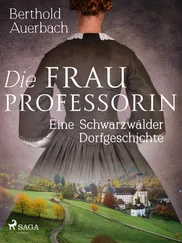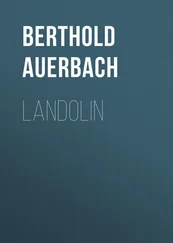Berthold Auerbach - Waldfried - A Novel
Здесь есть возможность читать онлайн «Berthold Auerbach - Waldfried - A Novel» — ознакомительный отрывок электронной книги совершенно бесплатно, а после прочтения отрывка купить полную версию. В некоторых случаях можно слушать аудио, скачать через торрент в формате fb2 и присутствует краткое содержание. ISBN: , Жанр: foreign_antique, foreign_prose, на английском языке. Описание произведения, (предисловие) а так же отзывы посетителей доступны на портале библиотеки ЛибКат.
- Название:Waldfried: A Novel
- Автор:
- Жанр:
- Год:неизвестен
- ISBN:http://www.gutenberg.org/ebooks/32446
- Рейтинг книги:3 / 5. Голосов: 1
-
Избранное:Добавить в избранное
- Отзывы:
-
Ваша оценка:
- 60
- 1
- 2
- 3
- 4
- 5
Waldfried: A Novel: краткое содержание, описание и аннотация
Предлагаем к чтению аннотацию, описание, краткое содержание или предисловие (зависит от того, что написал сам автор книги «Waldfried: A Novel»). Если вы не нашли необходимую информацию о книге — напишите в комментариях, мы постараемся отыскать её.
Waldfried: A Novel — читать онлайн ознакомительный отрывок
Ниже представлен текст книги, разбитый по страницам. Система сохранения места последней прочитанной страницы, позволяет с удобством читать онлайн бесплатно книгу «Waldfried: A Novel», без необходимости каждый раз заново искать на чём Вы остановились. Поставьте закладку, и сможете в любой момент перейти на страницу, на которой закончили чтение.
Интервал:
Закладка:
From that moment I began to like Annette. She had gone much further than I had dared even in my thoughts, and proved, at the same time, that her heart was true, and that she could not separate her feeling for art from the rest of her life.
Bertha showed my wife's letters to her friend, who conceived the most enthusiastic affection for Martella. She often inquired whether there was anything she could do for the charcoal-burner's daughter.
There was danger of offending her by refusing her gifts. Even a virtue may at times assume a repulsive form. Annette's complaint-I cannot express it otherwise-was a passion for helping others.
My wife wrote that Martella was like a fresh bubbling spring, which only needed to be kept within bounds to become a refreshing brook; but that this must be carefully done, for inconsiderate attempts to deepen the channel or divert its course might ruin the spring itself.
My wife also informed us that Ernst had been home to pay a short visit. He seemed quite pensive, and expressed his dissatisfaction with the fact that Martella was looking so pale. He approved of the education which she was receiving, but thought that her freshness and strength should not be sacrificed. He said he had formed a plan to live with Rautenkron, with whom he intended to practice, and also said that when once in the quiet forest he would study industriously.
My wife strenuously objected to this course. She maintained that where there was a will, one could attend to his duty in any position; and moreover, that at the present time it was not well for Ernst and Martella to see each other so often.
Martella was of the same opinion; and my wife could hardly find words to express her delight that Martella was constantly acquiring gentleness and consideration for others. Although at first she had been loud and noisy, there was now something graceful and soothing in her manner. She would arise early in the morning and dress herself in silence, while my wife would feign sleep in order that Martella might become confirmed in her gentle manners.
One evening, when Martella had been the subject of protracted conversation, I returned to my room, and for the first time noticed a colored lithographic print that had been hanging there. It was the picture of a danseuse who had been quite famous some years before. It represented her in a difficult pose, and with long, flowing hair. The print startled me.
It was wonderfully like Martella; or was it simply self-deception caused by her having been in our thoughts during the whole evening?
I felt so agitated that I lit the lamp again and took another look at the picture. The likeness seemed to have vanished.
CHAPTER XII
Towards the end of November, my wife wrote to me that Ernst had been at home again, and that, several hours after his arrival, he had, in the most casual manner, mentioned that he had successfully passed his examination as forester. When my wife and Martella signified their pleasure at this piece of news, he declared that he had only passed his examination in order to prove to us and the rest of his acquaintance, that he, too, had learned something, but that he was not made to be put just where the state desired to place him, and that, in the spring, he and Martella would emigrate to America, as he had already come to an understanding with Funk in regard to the passage.
When he asked Martella why she had nothing to say on the subject, she replied:
"You know that I would go to the end of the world with you. But we are not alone. If we go, your parents and your brothers and sisters must give us their blessing at parting."
"Oh! that they will."
"I think so too. But just consider, Ernst! We are both of us quite young, and I have just begun to live. Do not look so fierce; when you do that, you do not look half so handsome as you really are. And besides, there is something yet on my mind which I must tell you, and in which I am fully resolved."
"I cannot imagine what you mean; it seems, at times, that I really do not know you as I once did."
"You do know me, and it grieves me to be obliged to tell you so."
"What is it? What can it be? You have become quite serious all at once."
"I am glad that you can say so much in my praise, for I have need of it; and I feel quite sure that you will approve of what I am going to say.
"Just see, Ernst! I won't speak of anything else-but with mother's aid I have begun so much that is good, that I cannot bear to think of hurrying away while the work is half finished. You have passed your examination; let me pass mine too. First let mother tell me that my apprenticeship is at an end, and then I will wander with you; and we shall be two jolly gadabouts, and have lots of money for travelling expenses. Isn't it so? You will let me stay here ever so long; won't you?
"Ah, that is right. You are laughing again, and I see that you approve of what I have said. If you had not done so you should have had no peace, for my mind is made up.
"The canopied bed next to your mother's is now mine; and indeed it is a heavenly canopy that one must be slow to leave. And, as I told you before, I have just begun to live."
Ernst looked towards my wife. It seemed as if doubt and pride were struggling within him. When Martella had left the room and my wife urged him to remain with us and to afford us the joy of having such a daughter-in-law in our home, he was vanquished, and exclaimed:
"Yes, I am indeed proud of her! I must admit I never expected so much of her. If she only does not grow over my head."
My wife wrote me that she only remembered a portion of what had happened. The wisdom and feeling evinced by the child had surprised her; and the subdued, heartfelt voice in which she had spoken had been as delightful as the loveliest music. She had been obliged to ask herself if this really was the wild creature who had entered the house but three-quarters of a year ago. The change that she had devoutly wished for had been brought about with surprising rapidity. Martella had awakened to a sense of the duties life imposes on all of us.
Nothing can be more gratifying than to find that a just course of action has produced its logical results.
Thus all was well. Ernst went out hunting with Rautenkron, and once even prevailed on him to visit our house.
Rautenkron had but little to say to Martella. He would knit his heavy eyebrows, and cast searching side-glances on the child. This was his custom with all strangers. When taking leave of my wife, he inquired whether we knew anything of Martella's parentage. All that we knew was that she had been found in the forest when four years old. Jaegerlies had cared for her until Ernst brought her to our house. Martella had told more than that to Richard, but he had firmly refused to tell us what it was. When Rautenkron had left, Martella said:
"He looks like a hedgehog, and I really believe that he could eat mice."
In the last letter that I received before returning to my home, my wife wrote me that Martella had displayed a very singular trait.
Rothfuss had become sick, and Martella, who was as much attached to him as if she were his own child, could neither visit nor nurse him. She had an unconquerable aversion to sick people. She would stand by the door and talk to Rothfuss, but she would not enter his room. She was quite angry at herself because of this, but could not act differently.
"I cannot help it-I cannot help it," she said. "I cannot go near a sick person." He begged her to procure some wine for him; some of the red wine down in the glass house. He knew that would make him well again. Rothfuss found as much pleasure in deceiving the doctor as he usually did in outwitting the officers.
Martella cheerfully entered into his plan; she got the wine for him, and from that day he gradually improved in health.
Читать дальшеИнтервал:
Закладка:
Похожие книги на «Waldfried: A Novel»
Представляем Вашему вниманию похожие книги на «Waldfried: A Novel» списком для выбора. Мы отобрали схожую по названию и смыслу литературу в надежде предоставить читателям больше вариантов отыскать новые, интересные, ещё непрочитанные произведения.
Обсуждение, отзывы о книге «Waldfried: A Novel» и просто собственные мнения читателей. Оставьте ваши комментарии, напишите, что Вы думаете о произведении, его смысле или главных героях. Укажите что конкретно понравилось, а что нет, и почему Вы так считаете.












